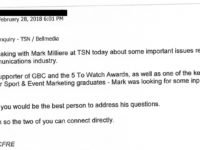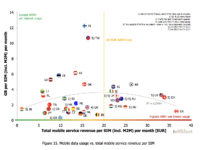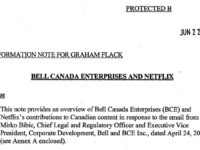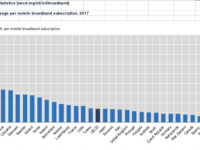Earlier this year, I posted the results of an access to information request to George Brown College (GBC) that sought to explain how the college came to publicly support the FairPlay website blocking proposal at the CRTC. Much like similar documents from Brock University, the George Brown College documents showed a request from Mark Milliere, an executive at Bell-owned TSN, about a week before the deadline sparked the submission. The resulting letter, which came from GBC President Anne Sado, was cited by the Bell-led coalition in its reply letter to the CRTC.
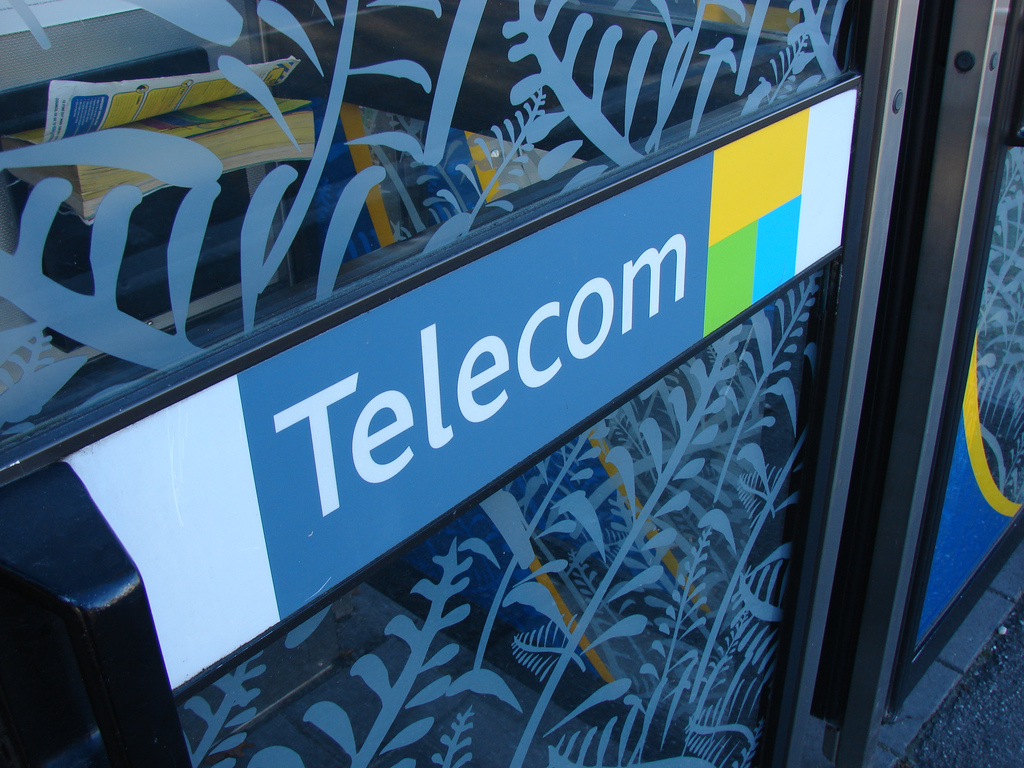
Telecom by yum9me (CC BY-NC-ND 2.0) https://flic.kr/p/53jSy4
Telecom
CRTC Truthiness: New Docs Reveal New Story About Bell Meetings with the Commission on Website Blocking
Earlier this year, access to information documents obtained by the Forum for Research and Policy in Communications revealed that Bell had presented its plan for website blocking to CRTC officials months before it was formally filed to allow for public review and comment. As far back as July 2017, Bell pressed a CRTC commissioner for a meeting, which led to a Commission presentation in September 2017. The CRTC downplayed the meeting, telling reporters in response to queries that there was a meeting with Commission legal staff on September 21, 2017.
The State of Canadian Wireless in One Chart: No One Has Carriers That Generate More Revenue With Less Usage
Tefficient has released a new report on global wireless market that makes it clear that Canada is a global outlier (or leader if you are a telecom executive). Simply put, no one has carriers that generate more revenue with less usage per SIM than Canada.
Government Memo Suggests Netflix Outspends Canadian Private Broadcasters on Canadian English Scripted Programming
Canadian Heritage Minister Melanie Joly view of cultural policy shifted gears in recent months with her emphasis on the need for all players to contribute and rhetoric on “no free rides”, a position that could lead to taxes on Internet services. While Netflix has been a popular target for many Canadian cultural organizations, according to documents released under the Access to Information Act, Canadian Heritage officials appear to have evidence that Netflix spends more on Canadian English-language scripted programming than the Canadian private broadcasters. The revelations come in a June 2017 internal memo to Graham Flack, the Canadian Heritage Deputy Minister, which respond to correspondence from BCE’s Mirko Bibic. Bibic met with Flack in April 2017 and was concerned with department comments about Netflix outspending Bell.
The Consequences of High Wireless Costs: OECD Data Confirms Canadians Lag Behind in Data Usage
The OECD released the latest data on broadband usage this week highlighting yet again that the high costs of Canadian wireless services have real world consequences when it comes to consumer data usage. Earlier this month, Canadian Wireless Telecommunications Association President Robert Ghiz told an industry conference:
Consumption of mobile data – through all kinds of apps and every flavour of streaming content – continues to grow at an astounding rate in Canada. Mobile data traffic in our country increased by 41% between 2015 and 2016 alone.
Yet the OECD comparative data tells a far different story. First, OECD data indicates that Canada is at the low end of countries when measured by mobile broadband subscriptions per 100 inhabitants, ranking well below the OECD average and ahead of only six other OECD countries.
